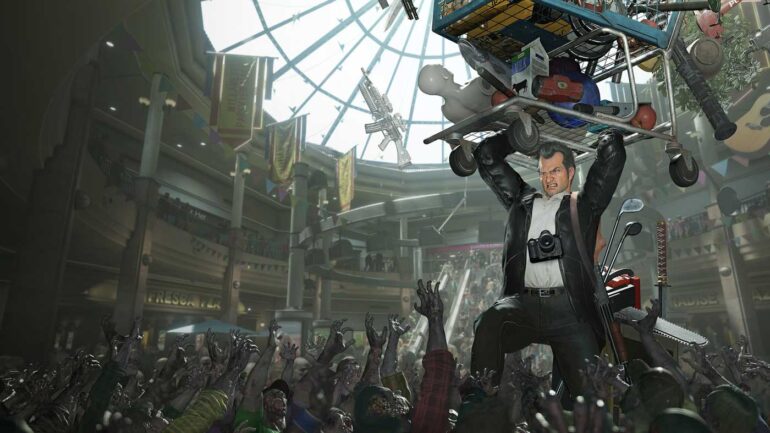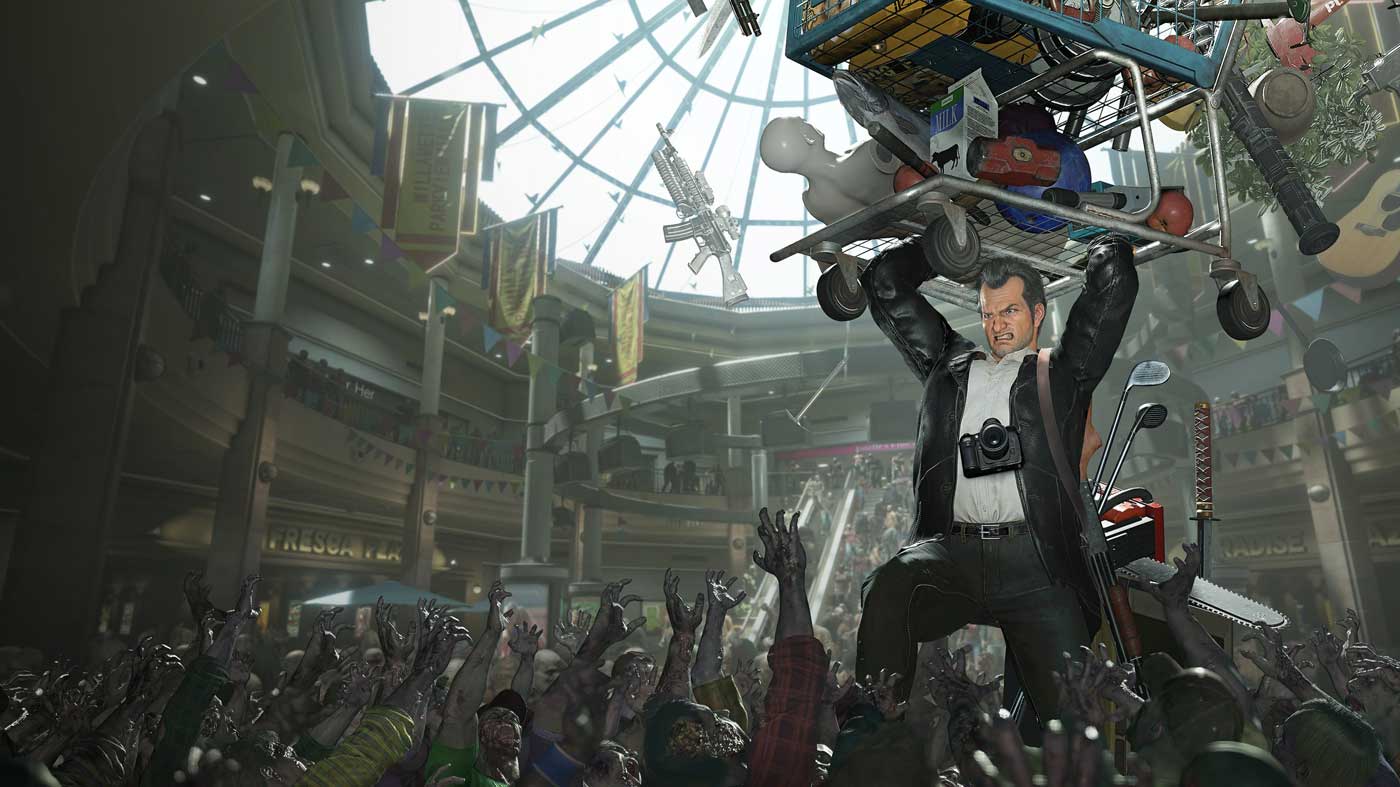Press Start may receive a commission when you buy from links on our site at no extra cost to you.
It’s daunting to think the original Dead Rising is almost twenty years old. When it was first released on the Xbox 360, I remember it being so mind-blowing that so many zombies could be rendered on-screen simultaneously. It felt truly next-gen. But it’s been a long time since then, while I had a chance to revisit the game eight years ago, some aspects haven’t aged well. Now, Capcom has done the seemingly impossible with Dead Rising: Deluxe Remaster. They’ve made Dead Rising a lot more approachable, but without sacrificing the game’s unique identity.
But to get one thing out of the way here – Capcom is underselling themselves by calling this a Deluxe Remaster. From a visual standpoint, it’s closer to a full-blown remake. The game has seen a significant visual upgrade thanks to Capcom’s ever-gorgeous RE Engine, but it has seen numerous gameplay improvements, too. As such, Deluxe Remaster firmly occupies the space between an exhaustive restructure seen in games like Resident Evil 2 and the very barebones remaster treatment the original game received eight years ago.
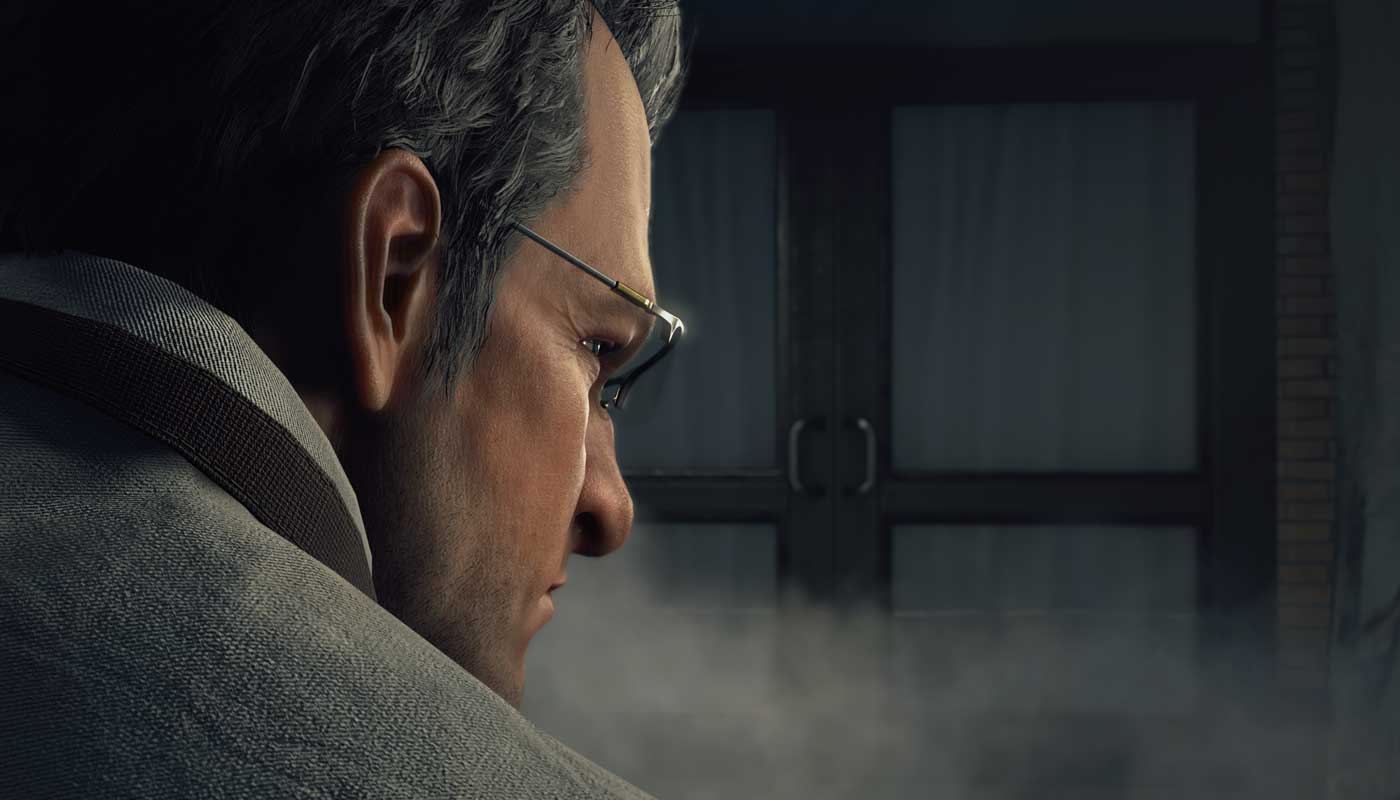
That said, a lot has stayed the same with how Deluxe Remaster is structured. If you remember the best path through the game, it’ll work here. As such, the story is the same too. You still play as Frank West, a photojournalist investigating strange goings-on at Willamette Parkview Mall, only to discover that the population has been turned to zombies. You have three days to learn why, which equates to around six hours in real-time, and you can use that time in whatever manner you wish.
Back then and still now, Dead Rising is structured uniquely. The main storyline is tied to cases Frank must investigate, which occur in the world at a certain time. If you’re not there when it starts, the storyline ends, and Frank must start over. There are many ways in which the game does a great job of communicating this to you, and the meat of the Dead Rising experience is discovering and planning the best course of action that’ll result in maximum returns for Frank. But if you fail, it’s not to worry because you’ll be able to start over with any upgrades you’ve earned for Frank (and the ever-powerful sense of hindsight) to do better.
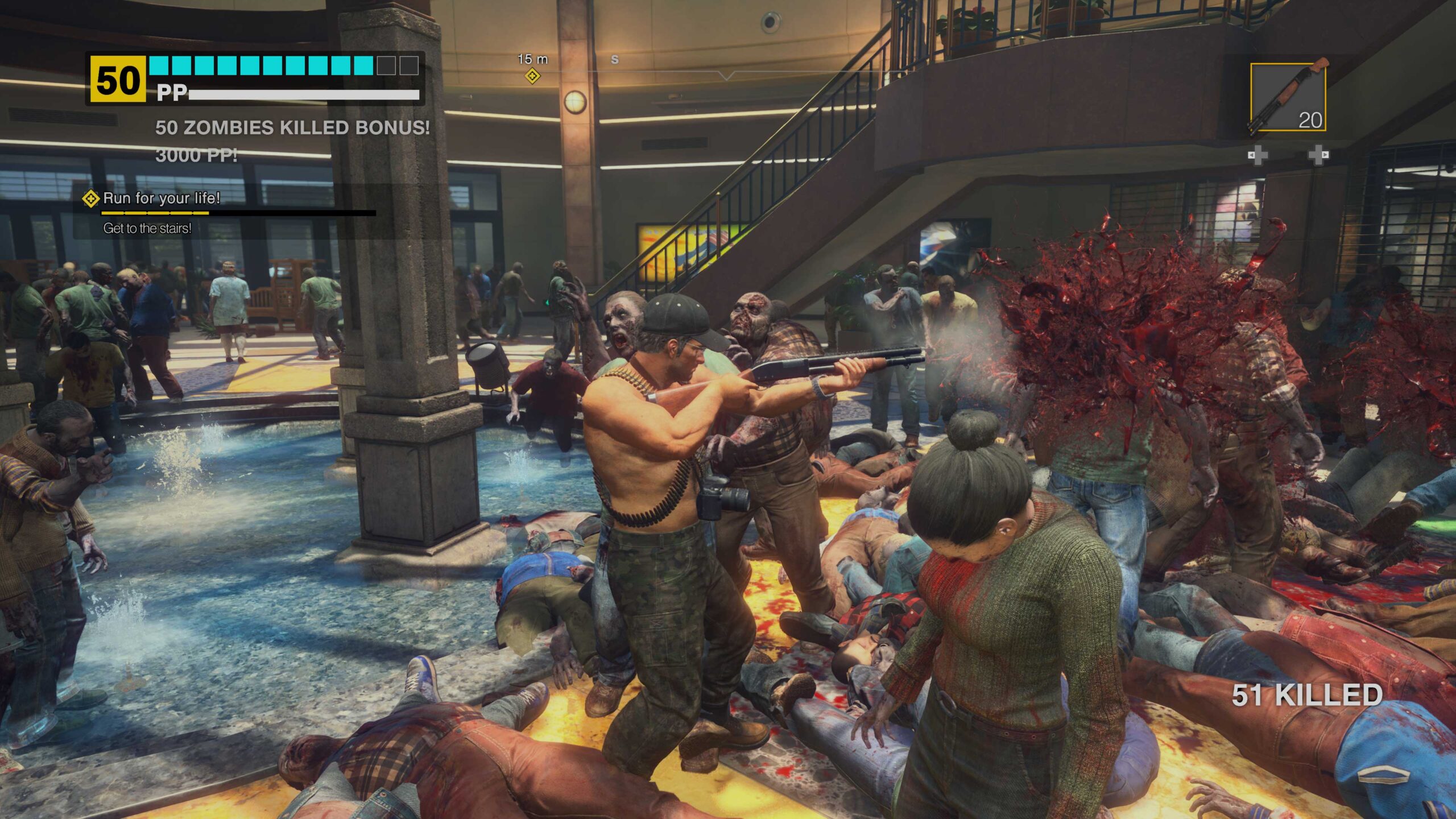
It’s more complicated, though. From time to time, Frank will be contacted on radio about scoops. Scoops are essentially side quests that are plopped into Frank’s journal for him to investigate as they get called in. They’ve all got individual timers attached and are at different points throughout the mall, so you’ve really got to prioritise who you’ll save and when. The more people you save, especially at once, the more experience you get. But the challenge comes in the balance – grabbing particular scoops and getting everyone to safety, all while the main story is about to progress somewhere else in the mall, can really be stressful.
It’s excellent news, then, that the Deluxe Remaster does everything possible to make this experience more convenient. Controls have been completely overhauled, with special moves mapped to face buttons instead of strange analogue inputs as in the original. Frank’s dodge roll also feels smooth, performed with a single button press. It may sound like a small change, but it makes Dead Rising feel much more modern. I returned to the original game last month to prepare for this one and it was bizarre how the control scheme was set out – which is still selectable in Deluxe Remaster, mind you – but this newer modern control scheme is a massive step in the right direction.
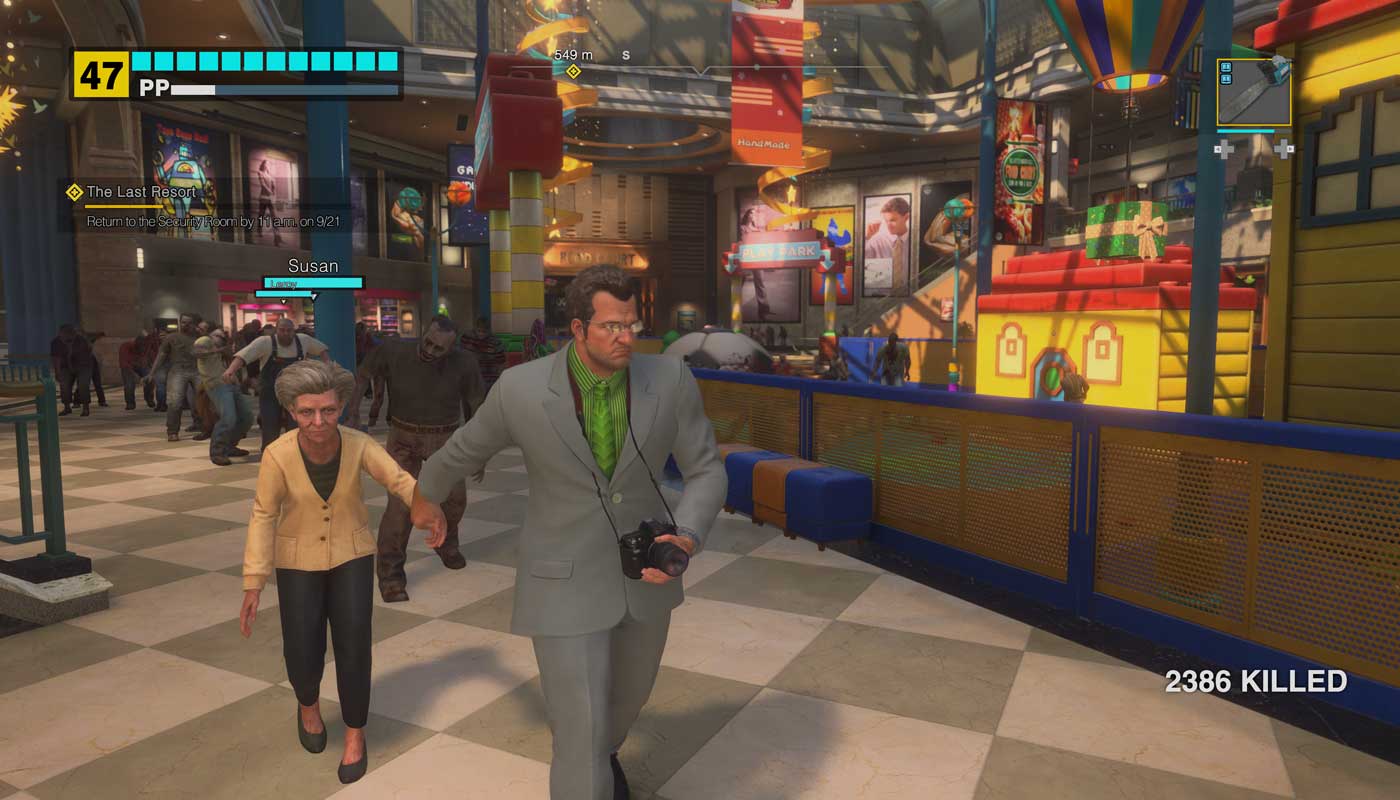
The other most obvious adjustment is improving the AI driving the survivors. It can still get pretty tense sometimes, especially when you’re escorting a larger group, but they tend to follow Frank closer or move quicker through hordes. This removes much of the frustration that might’ve been present in the original game, as it makes things easier. Some might have an issue with this, but at that point, I have to ask – what are you missing here? Is bad NPC AI really part of what made Dead Rising so special? I really don’t think so.
THE CHEAPEST PRICE: $69 FROM AMAZON
The way survivors work in Deluxe Remaster has similarly been overhauled. A new affinity system can improve their behaviour and performance in your party. Each survivor now has a set of items and weapons they prefer, and if you give them to them, they’ll be more likely to help Frank. They might become better at attacking, pointing out hidden collectibles or weapons or even helping other survivors. It’s a cool system that, as a series veteran, didn’t have to engage with much, but one that is, once again, making the experience more accessible to newcomers.
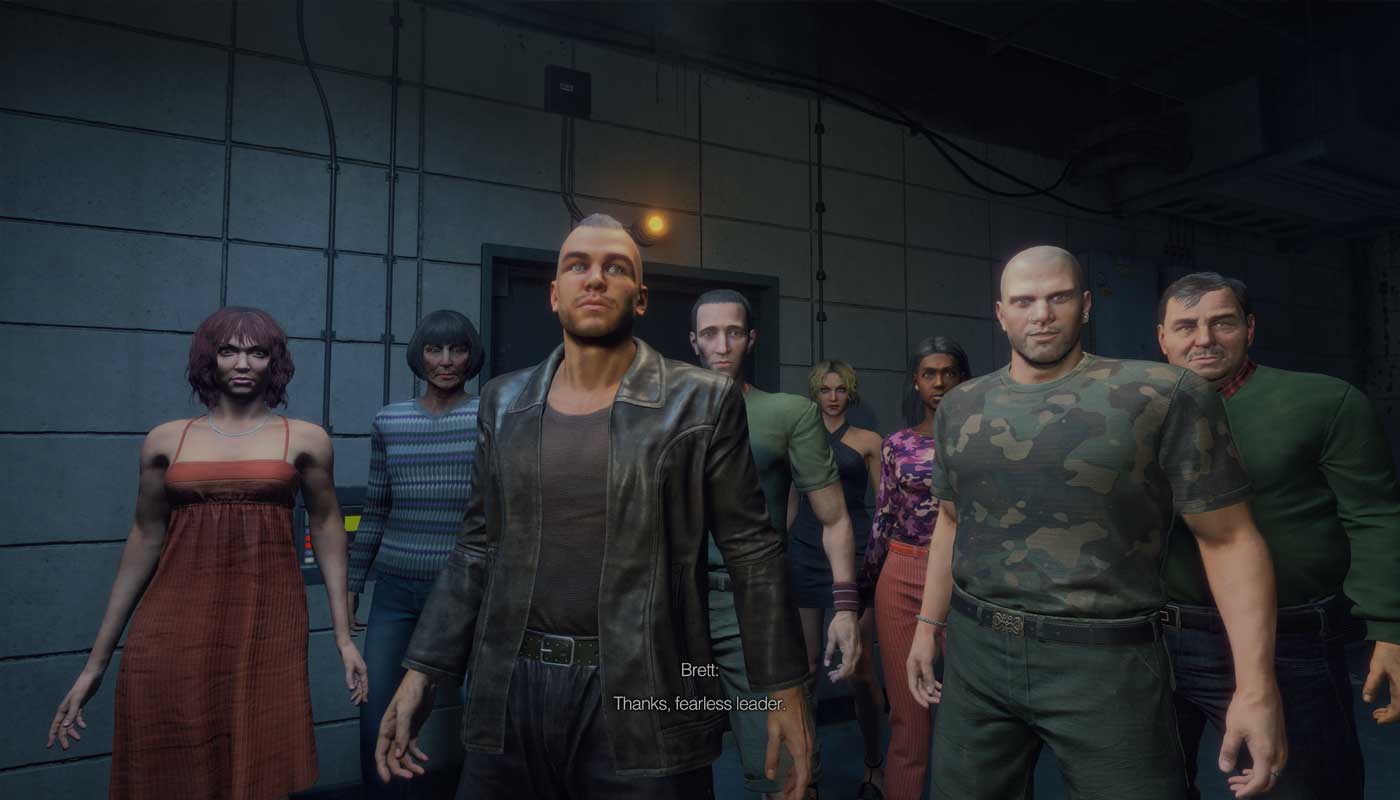
But while everything is becoming less challenging, the boss battles feel like they’ve stepped in the opposite direction. The bosses were great in the original, but you’d often stand there, trading blows with them. They were unfortunate victims of the janky control scheme that the original game had. But in Deluxe Remaster, every boss battle has seen some adjustment. There are still some frustrating moments, particularly with one enemy introduced late in the game, but overall, the game flows and plays so much better now.
These improvements are sensible. If you kill a convict driving a car, one of the other two will change seats and continue driving the car now. Cletus, the maniacal gun shop owner, would stand there and take bullets from you, occasionally fighting back. Now, he ducks under the counter and crawls around until you stop firing. They’re small changes that do mean the boss battles take longer now. But given how quickly you can do everything else in Deluxe Remaster compared to the original, it doesn’t dramatically break the game’s balance.
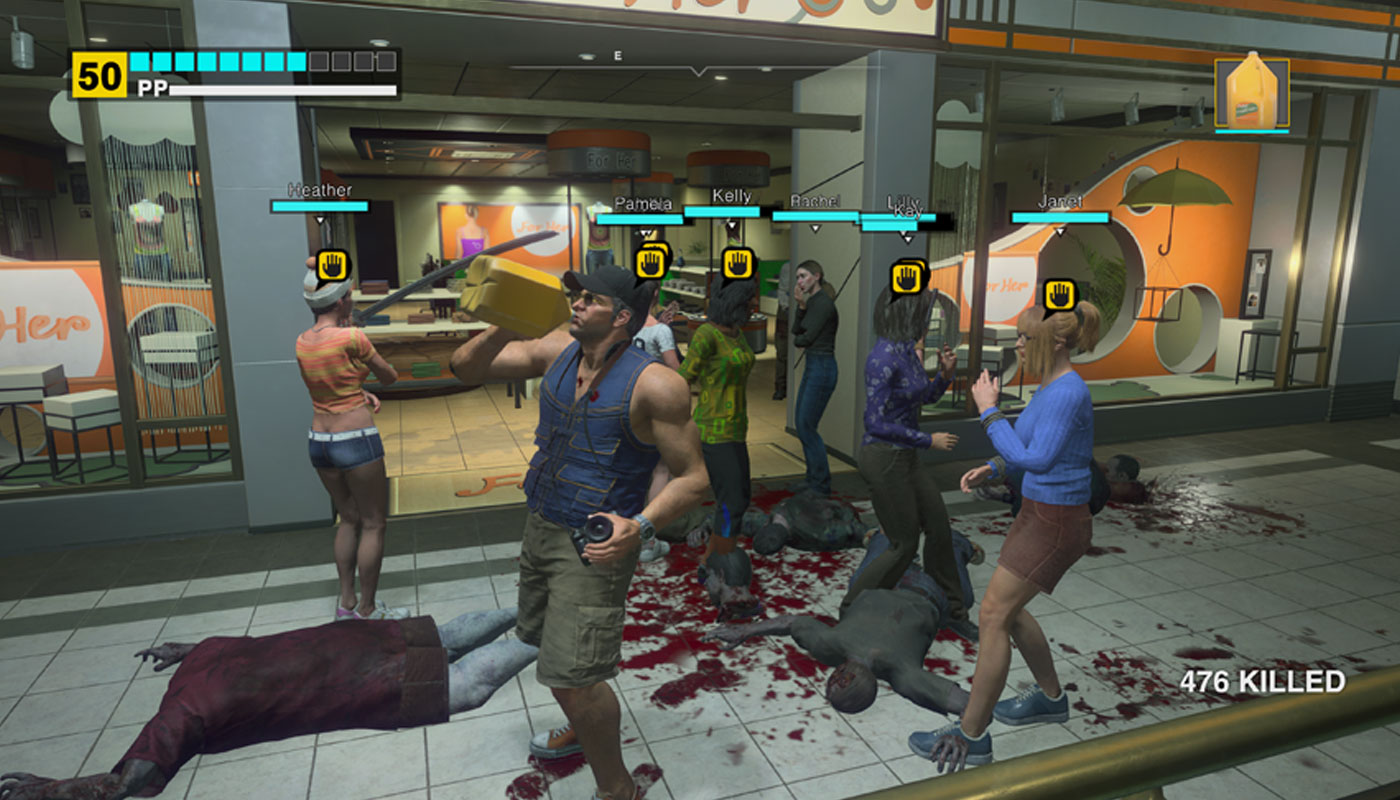
Other smaller improvements all contribute to a better experience for players. Every item you pick up now has a visible deterioration meter, so you know when your trust bat might break. Everybody is also now voiced, which is especially useful when you first walk into an area and hear them screaming out at you. You can now skip through conversations with the shoulder buttons, which might sound like a small change, but it is a huge improvement over the original, where (text-based) conversations would restart if either of you got hit with something mid-conversation. And, of course, at any save point, you can fast-forward time if you’re left with nothing to do, so the game doesn’t drag if you find yourself being efficient.
Of course, the most obvious change is in the game’s presentation. Undeniably slicker than the original game, the world has been overhauled to look richer and denser than in the original. The parks are filled with more trees, and every mall is accented with bright and vibrant neon lights. Rubbish adorns the main concourse of each mall. Hell, even sculptures have been added where they make sense. It all comes together to show off the best version of the Willamette Mall so far.
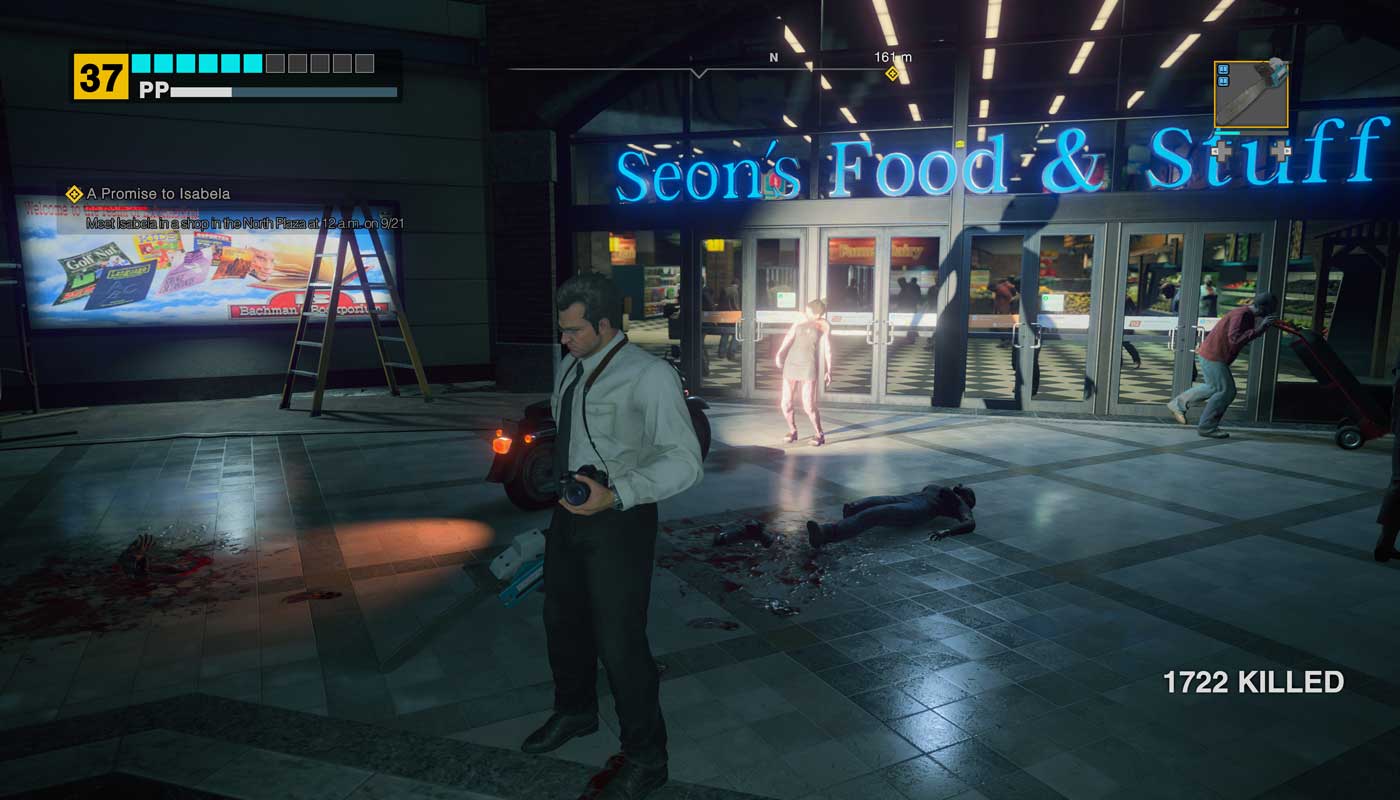
More contentious is the way nighttime is now handled, as it is particularly dark, but when the moonlight and the storefronts are the only things lighting up each mall, I personally adore it. It is a huge visual jump, and while it is much less colourful than the original, the density and detail of everything make up for it.
But one point where I’m not sure if there is an improvement is in the game’s audio – specifically, the new voice work. Everyone has been recast in Deluxe Remaster, including Frank. And while it’s a bit jarring to hear Frank not be played by TJ Rotolo after so long, he’s not the one I have an issue with here. Most of the new cast for the supporting characters, barring Isabella and Carlito, fall flat. They sound less enthused than the original – perhaps in a bid to suit the more realistic look of Deluxe Remaster’s overhaul. But it lacks the original’s charm or, dare I say it, soul. Barring that, everything else feels epic – the original music used in each boss battle is especially electric.
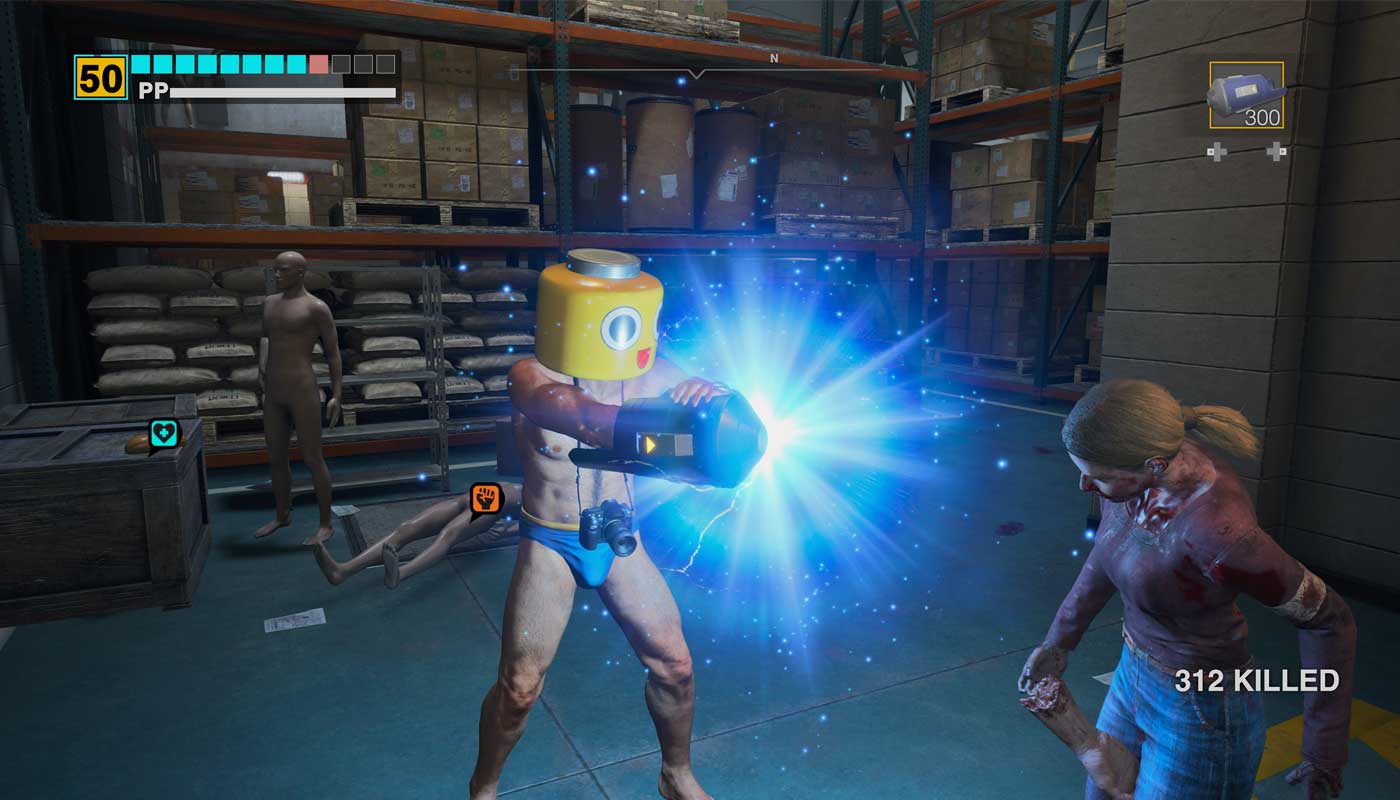
So, while Deluxe Remaster calls itself a remaster, it does a lot to insist that it’s so much more than that. This is a remake – fair and square – with many improvements. It’ll be up for debate as to whether fans think the quality-of-life improvements make things too easy at the end of the day, but Deluxe Remaster is such a faithful translation of the original Dead Rising experience that I’m firmly in the opposite camp. It’s far and away the best version of Dead Rising we’ve ever had, and I can only hope we’ll be fortunate enough to see the same treatment with Dead Rising 2.


